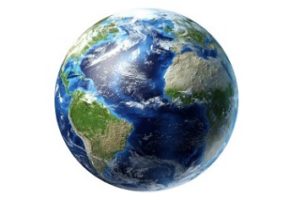In possibly the most momentous environmental announcement ever made by an American president, Donald Trump told the world on Thursday that the United States is withdrawing from the 2015 Paris Climate Agreement. A nation’s actual withdrawal from the Paris Agreement is not as simple as standing up and walking out, and the process of separation could extend for several years.

In his address to a home-town audience in the White House Rose Garden, the president stated repeatedly that the agreement effectively imposed hardship and stagnation on the United States so that other nations could gain an economic edge. In fact, the president indicated that the goal of the global agreement was less about environmental protection than to achieve a massive redistribution of United States wealth to other countries.
“The fact that the Paris deal hamstrings the United States, while empowering some of the world’s top polluting countries, should dispel any doubt as to the real reason why foreign lobbyists wish to keep our magnificent country tied up and bound down by this agreement,” said the president “It’s to give their country an economic edge over the United States. That’s not going to happen while I’m President.”
Renegotiation or New Deal
While not indicating if his skepticism about the human impact on the earth’s climate has changed, the president said his administration will engage with other nations on a new United States commitment under the Paris Agreement or will consider joining a new agreement.
“In order to fulfill my solemn duty to protect America and its citizens, the United States will withdraw from the Paris climate accord but begin negotiations to re-enter either the Paris accord or an entirely new transaction on terms that are fair to the United States,” the president said. “We are getting out. But we will start to negotiate, and we will see if we can make a deal that’s fair. And if we can, that’s great.”
Trump invited Congressional Democrats into discussions to develop such an agreement.
“We’ll sit down with the Democrats and all of the people that represent either the Paris Accord or something that we can do that’s much better than the Paris Accord,” said the President. “And I think the people of our country will be thrilled, and I think then the people of the world will be thrilled. But until we do that, we’re out of the agreement.”
Green Climate Fund
The president’s clear animosity toward the United States Intended Nationally Determined Contribution of a 26-28 percent reduction in GHGs by 2025 compared to 2005 emissions, which was promised by the Obama administration, was matched by his disdain for the United States role in the Green Climate Fund, a provision of the Paris Agreement in which developed nations contribute to the GHG reduction efforts of developing nations. The president said the fund was “costing the United States a vast fortune.”
“The Green Fund would likely obligate the United States to commit potentially tens of billions of dollars of which the United States has already handed over $1 billion — nobody else is even close; most of them haven’t even paid anything — including funds raided out of America’s budget for the war against terrorism,” said the president.
Trump also said that Paris allowed China and India, the world’s other top emitters of GHGs, to continue to build coal fired power plants while the agreement would force the United States to retire its own plants.
“Under the agreement, China will be able to increase these emissions by a staggering number of years – 13,” said the president. “They can do whatever they want for 13 years. Not us. India makes its participation contingent on receiving billions and billions and billions of dollars in foreign aid from developed countries. There are many other examples. But the bottom line is that the Paris Accord is very unfair, at the highest level, to the United States.”
Trump expressed his fondness for United States coal miners and said, “I was elected to represent the citizens of Pittsburgh, not Paris.”
Who Will Now Lead?
At least from a governmental standpoint, Trump’s decision surrenders the nation’s global leadership in combating emissions of greenhouse gases, a role that President Obama had worked hard to assume through many administrative rules.
Most prominent among those is the EPA’s Clean Power Plan (CPP), which required steep cuts in carbon dioxide emissions from coal fired power plants. The Obama administration’s promulgation of the CPP was the decisive bargaining chip in the negotiations leading to the Paris Agreement, the signal to the world that, to help reduce human influence on the earth’s climate, the United States was going to make major changes in how it generates energy. The world paid attention and, at least in terms of paper commitments, was willing to follow. All but two nations (Syria and Nicaragua) that are parties to the UN Framework Convention on Climate Change (UNFCCC) either signed or signed and ratified the agreement.
Now, with the United States withdrawing, will China or another nation or group of nations take over the space the United States has vacated and motivate nations to stick to their commitments? Or will the United States decision dissipate the momentum and unity of purpose that was forged in Paris?
A transcript of Trump’s address is here.
